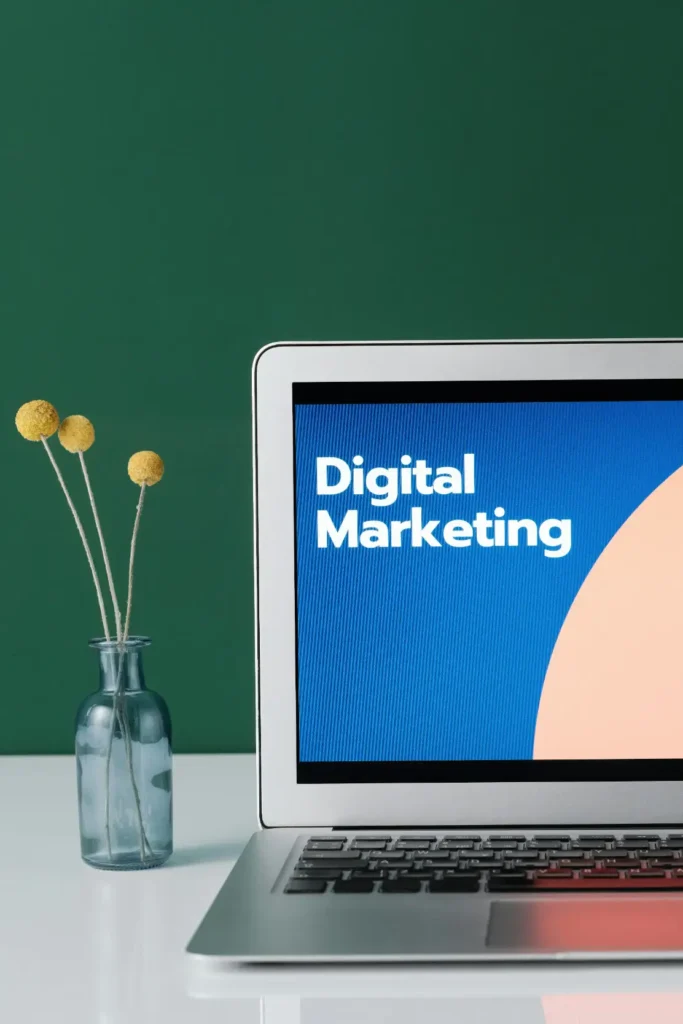How To Create a Successful Digital Marketing Strategy
In today’s fast-paced business environment, having a strong and effective digital marketing strategy is more essential than ever. Understanding how to create a successful digital marketing strategy is essential for businesses to thrive in the digital landscape. With the rise of online platforms, digital advertising, and the increasing importance of SEO and content creation, businesses must adapt to stay competitive. This comprehensive guide will walk you through the essential steps to develop a successful digital marketing strategy, utilizing key tactics such as SEO, PPC, content marketing, and more. By focusing on the right channels and continually optimizing your efforts, you can create a strategy that drives results and positions your business for long-term success.
Creating a successful digital marketing strategy involves several key steps and elements that can help businesses achieve their marketing objectives. Here’s a detailed description of the process, followed by essential content to build your digital marketing strategy.
A digital marketing strategy is a plan that outlines how to achieve your business goals through online marketing channels. Understanding how to create a successful digital marketing strategy is crucial to leveraging the full potential of these platforms. The strategy takes into account the use of various digital tools-such as social media, search engine optimization (SEO), email marketing, content marketing, paid ads, and more-to attract, engage, and convert your target audience. A well-crafted strategy ensures that your marketing efforts are aligned with your business goals, measurable, and adaptable to changing market conditions.


Define Your Goals and Objectives Start by setting clear and measurable goals. To understand how to create a successful digital marketing strategy, it’s essential to define your objectives early on. These could include increasing brand awareness, generating leads, boosting sales, or enhancing customer loyalty. Your objectives should be clear, measurable, attainable, relevant, and time-bound (SMART). By setting these goals, you provide a clear direction for your digital marketing efforts and ensure they align with your broader business objectives.
Understand Your Target Audience Knowing your audience is crucial for crafting effective digital marketing campaigns. Create detailed buyer personas that represent your ideal customers based on demographics, behaviors, interests, and pain points. This allows you to tailor your content and messaging to appeal directly to their needs and desires.
Conduct a Competitive Analysis Study your competitors’ digital marketing efforts to understand their strengths and weaknesses. This helps identify opportunities in your own strategy and also gives you insights into what works and what doesn’t in your industry.
Select the Right Digital Marketing Channels: Numerous digital marketing channels are at your disposal, such as:
- Social Media: Platforms like Facebook, Instagram, LinkedIn, and Twitter are excellent for engaging with your audience and building a community.
- SEO: Optimizing your website and content to rank higher in search engine results increases organic traffic.
- Email Marketing: Building a list of subscribers and nurturing relationships through personalized emails.
- Paid Advertising: Platforms like Google Ads, Facebook Ads, and display ads can help you reach your target audience faster with a higher return on investment (ROI).
- Content Marketing: Creating valuable content such as blogs, videos, and infographics that address your audience’s pain points and questions.



Table of Contents
Understanding the Basics of Digital Marketing Strategy
A digital marketing strategy is a comprehensive plan that outlines how a business will leverage online channels to reach its target audience, promote its products or services, and achieve specific marketing goals. Understanding how to create a successful digital marketing strategy is crucial for businesses looking to thrive in today’s competitive landscape. In recent years, digital marketing has become indispensable for all types of businesses, from large corporations to small startups. This strategy typically encompasses a variety of tactics, including SEO, content marketing, social media marketing, PPC advertising, and email marketing. By integrating these elements effectively, businesses can create a robust approach to attract, engage, and convert their audience.
The purpose of how to create a successful digital marketing strategy is to ensure that all online marketing efforts are aligned with your business objectives. A strong digital marketing strategy can help businesses gain visibility, increase leads, boost sales, and improve brand awareness. By understanding the key elements of a successful strategy, businesses can create a cohesive plan that drives measurable results and supports long-term growth.
Essential Components of an Effective Digital Marketing Strategy
To understand how to create a successful digital marketing strategy, several crucial elements must be considered. These include setting clear goals, understanding your audience, selecting the right channels, and continuously measuring performance. Let’s break down these elements in more detail. By focusing on these key components, you can ensure your strategy is effective and aligned with your business objectives, ultimately driving better results.

- Define Your Marketing Goals
The first step in how to create a successful digital marketing strategy is to clearly define your goals. Your goals will guide your marketing efforts and help you determine the success of your strategy. These goals could range from increasing brand awareness, boosting website traffic, generating leads, or improving conversion rates. By setting clear objectives, you create a solid foundation for your digital marketing efforts and ensure that your strategy aligns with your business goals.
- Know Your Target Audience
Understanding how to create a successful digital marketing strategy starts with understanding your target audience. This is essential for tailoring your marketing efforts effectively. Conduct thorough research to identify your audience’s demographics, interests, online behavior, and preferences. This knowledge will help you craft personalized content and choose the right marketing channels to reach them, ensuring that your strategy resonates with your ideal customers.
- Choose the Right Digital Marketing Channels
How to create a successful digital marketing strategy involves selecting the right digital marketing channels, which are the platforms through which businesses interact with their audience. Among the most widely used channels are:
- SEO (Search Engine Optimization): Optimizing your website for search engines to improve visibility.
- PPC Advertising: Paid ads on search engines and social media to reach specific audiences quickly.
- Content Marketing: Creating and sharing valuable content to engage your audience.
- Social Media Marketing: Leveraging platforms like Facebook, Instagram, LinkedIn, and Twitter to engage with potential customers.
- Email Marketing: Using emails to nurture relationships with existing customers and prospects.
Selecting the right combination of these channels is key to your strategy’s success.



How SEO Digital Marketing Plays a Role in Your Strategy
How to create a successful digital marketing strategy involves incorporating key components like Search Engine Optimization (SEO). SEO is one of the most crucial elements of any digital marketing strategy. It aims to improve the visibility of your website on search engines like Google, which ultimately drives organic traffic. By optimizing your website with relevant keywords, creating high-quality content, and improving user experience, you can rank higher on search engine results pages (SERPs) and increase your website’s exposure.
How to create a successful digital marketing strategy involves utilizing both on-page and off-page SEO strategies. On-page SEO focuses on optimizing elements such as content, title tags, meta descriptions, and internal linking. Off-page SEO includes activities like link building and social media signals. Both strategies work together to improve your website’s visibility and search engine rankings, which are essential for driving organic traffic.
Content Marketing and SEO Go Hand-in-Hand
How to create a successful digital marketing strategy includes recognizing that high-quality content is vital for SEO. A well-executed content marketing strategy can help boost your SEO efforts by generating backlinks and improving user engagement. Additionally, a well-rounded content marketing strategy can attract more visitors to your website, increase brand awareness, and encourage conversions, all of which are essential for long-term success.
How to create a successful digital marketing strategy requires businesses to recognize that SEO and content marketing go hand in hand. For businesses looking to stay competitive in the crowded digital landscape, these two elements work together to enhance visibility and engagement. Many businesses choose to work with content marketing agencies and SEO digital marketing experts to ensure their strategies are effective and aligned

The Importance of PPC in Your Digital Marketing Strategy
How to create a successful digital marketing strategy involves balancing both long-term and short-term tactics. While SEO provides long-term benefits, PPC (Pay-Per-Click) advertising delivers immediate results. PPC allows businesses to advertise on platforms like Google Ads, Facebook, and Instagram, paying only when a user clicks on the ad. This strategy can be highly effective for driving targeted traffic to your website, especially for eCommerce businesses, and is an important component of a comprehensive digital marketing plan.
How to create a successful digital marketing strategy involves leveraging both SEO and PPC to maximize results. An eCommerce PPC agency can help businesses optimize their paid ad campaigns, ensuring they target the right audience and achieve a high ROI. PPC campaigns are often used to complement SEO efforts and provide quick visibility in search results, making them a valuable part of an integrated strategy for driving traffic and conversions.
How to create a successful digital marketing strategy involves using a combination of tactics to drive results. For example, an eCommerce business selling products online can run a PPC digital marketing campaign to target specific keywords related to their products, ensuring that they reach potential buyers quickly. Combining PPC with other strategies such as SEO and content marketing is often the best approach for long-term success, providing a well-rounded and effective strategy to increase visibility, traffic, and conversions.

Developing a Content Marketing Strategy
Content marketing is an essential part of any digital marketing plan. High-quality content can help establish your brand as an authority in your industry, drive traffic to your website, and engage your audience. A digital content strategy should include the creation of blog posts, social media updates, videos, infographics, and other forms of content that are relevant to your audience.
An effective content syndication strategy is also crucial for maximizing the reach of your content. This involves sharing your content across various platforms such as social media, industry blogs, and content aggregators to reach a broader audience.
To ensure the success of your content marketing efforts, it’s important to have a content marketing agency that can craft content that resonates with your audience and drives measurable results.
Evaluating the Effectiveness of Your Digital Marketing Strategy
Once your digital marketing strategy is in place, it’s essential to measure its success regularly. Without tracking performance, you won’t know whether your efforts are paying off. Below are some important metrics to monitor:
- Website Traffic: The volume of visitors arriving at your website.
- Conversion Rates: The percentage of website visitors who take a desired action (e.g., making a purchase).
- Return on Investment (ROI): The revenue generated compared to the amount spent on marketing.
- Engagement Metrics: Interactions such as likes, shares, comments, and other social media engagements.
Google Analytics, social media insights, and various PPC platforms can provide valuable data that helps you make informed decisions and adjust your strategy accordingly.


Online Marketing Strategies for Small Businesses
Small businesses frequently encounter distinct challenges in digital marketing. With limited budgets and resources, competing with larger companies can be tough. However, with the right approach, small businesses can achieve significant success online.
To make the most of your marketing efforts, small businesses should focus on online marketing strategies for small business that are cost-effective and yield high returns.Local SEO is crucial for small businesses that have a physical location.
Working with a local SEO agency can help improve your business’s visibility in local search results, driving more traffic to your store or website.
Additionally, small businesses should consider leveraging the power of digital media buying agencies, which can help them optimize their paid advertising campaigns. By choosing the right platforms and targeting the right audience, small businesses can ensure that their marketing efforts are both efficient and effective.

Choosing the Best eCommerce Marketing Agency
For businesses focused on eCommerce, selecting the right agency to handle your digital marketing can make all the difference. A best ecommerce marketing agency will help optimize your online store, improve product visibility, and increase conversions through targeted marketing strategies.
Whether you need ecommerce PPC management, content marketing in digital marketing, or SEO and digital marketing services, working with an experienced agency ensures that your strategy is tailored to meet your specific needs. The right agency will help you build a comprehensive online marketing strategy that drives long-term success.
Focus on B2B Digital Marketing Strategies
B2B (Business-to-Business) digital marketing requires a different approach than B2C (Business-to-Consumer) marketing. B2B digital marketing strategies should focus on building relationships, trust, and providing valuable resources that help other businesses solve their problems. This could include case studies, white papers, and informative content that positions your business as an industry leader.
Working with a B2B PPC agency can also be beneficial for creating targeted paid advertising campaigns that reach the right business decision-makers. Whether you are providing SaaS (Software as a Service) solutions or consulting services, a tailored B2B digital marketing campaign can help you achieve your goals.



Conclusion
Creating a successful digital marketing strategy requires careful planning, a deep understanding of your target audience, and a combination of various digital marketing tactics. Whether you are focusing on SEO, content marketing, PPC advertising, or social media, each element plays an important role in driving business growth and success.
By working with digital marketing agencies that specialize in SEO, content, PPC, and digital strategy, businesses can ensure that their efforts are optimized and aligned with their overall business goals. Keep measuring performance, stay updated with trends, and be flexible to adapt as the digital marketing landscape continues to evolve.
For businesses looking to dive deeper into digital marketing, exploring apps for learning programming can provide useful insights into the technical aspects of online marketing. Understanding coding, SEO best practices, and web development can enhance your digital marketing skills and lead to better strategy execution.
For more insights on how to improve your digital marketing efforts, visit Tech Up Daily.
Internal Link: Tech Up Daily provides more resources and detailed guides on digital marketing, SEO, PPC advertising, and content marketing to help your business succeed online.



